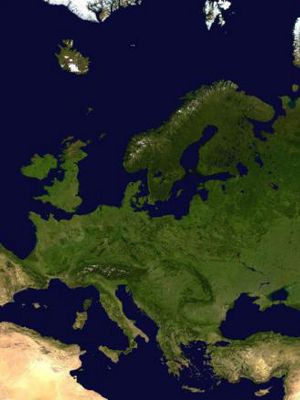The never-ending dilemma of the Greek budget and the specter of similar trouble with other countries are driving Europe toward more decisive political integration. This may, though, concern only the Euro countries, or not even all of them.
Due to political changes in France, this spring’s Fiscal Compact, having not been signed by the Czech prime minister, will probably be followed by further steps that will help transfer the highly damaging fiscal problems from individual countries to the EU level, where these sums do not seem to be as fatal.
It is clear that while individual countries hand over to the EU the responsibility for their debt, they relinquish the possibility of facing up to it as well. Until now, many countries hesitated to do so, and not only the ones that are less significant in the scheme of things, but even Germany. Recently, though, the German approach has changed. If some form of deeper integration occurs in the framework of the EU, which even Angela Merkel has acknowledged, it may well happen that the Czech government, or some of its members, will oppose the move.
The question is, for whom will that be significant. Generally speaking, the European integration policy consists of two types of treaties. The first ones are accession treaties, the latter ones are consensual treaties. The first ones are agreed upon by parties that want and are able to accept obligations that arise from the treaties. The latter ones have to be approved by all the parties of the treaties.
The Fiscal Compact was originally considered to be a treaty of the latter kind, a consensual treaty, much like the European Constitution or the Lisbon Treaty. When both of the treaties mentioned met with opposition in some countries, one was abandoned completely and the other became the subject of prolonged negotiations. They even waited for the Czech president to sign it, despite his procrastination. That wasn’t the case with the Fiscal Compact. It transformed instantly from a consensual treaty into an accession treaty. Why? Because Czech hesitation didn’t bother many of the crisis-preoccupied statesmen.
All this happened some time ago. It is still worth recalling, though, because it may mean more in the context of Czech history than it seems. In 1848, Czechs were invited to take part in the first attempt to unite Germany. The invitation was extended to the historian František Palacký. Neither he nor other Czechs took part and since then they have commemorated Palacký´s Letter to Frankfurt, in which the historian refused to participate in the Frankfurt Parliament, as the founding moment of the modern Czech nation. To put it simply – thanks to Palacký, Czechs aren’t German.
In the end, the parliament didn’t end up uniting Germany and was violently dissolved in 1849. And the whole thing was postponed by 20 more years. And not only that: there were two possibilities of unifying Germany discussed at the Frankfurt Parliament – the Smaller and the Greater German solutions. The latter one incorporating Austria, or specifically its German parts, which included the Czech lands. Germany was finally united by Bismarck and it was the „smaller“ Germany, without Austria, incorporating only the counties the inhabitants of which wanted to be Germans (with some exceptions – German national movement in Austria and French resistance in the then conquered parts of France).
If deeper integration of some parts of Europe is going to happen now, we should be asking which parts of Europe could actually do that at this point. Greater Europe, including even the Czechs, or Smaller Europe, including only the countries the inhabitants of which want to be Europeans?
It is hard to tell whether prime minister Nečas feels like Palacký. However, the feeling of history repeating itself in some deviant form is not the most pleasant one. In another 150 years the inconspicuous episode called prime minister Nečas’ appearance in Brussels could be commemorated as an event thanks to which the Czechs aren’t Europeans.
Hopefully, this is not just crying over spilled milk. It is, though, uneasiness at the prospect of being left out of the decisive moments that will be the outcomes of the EU president’s plans.
published: 17. 6. 2012







